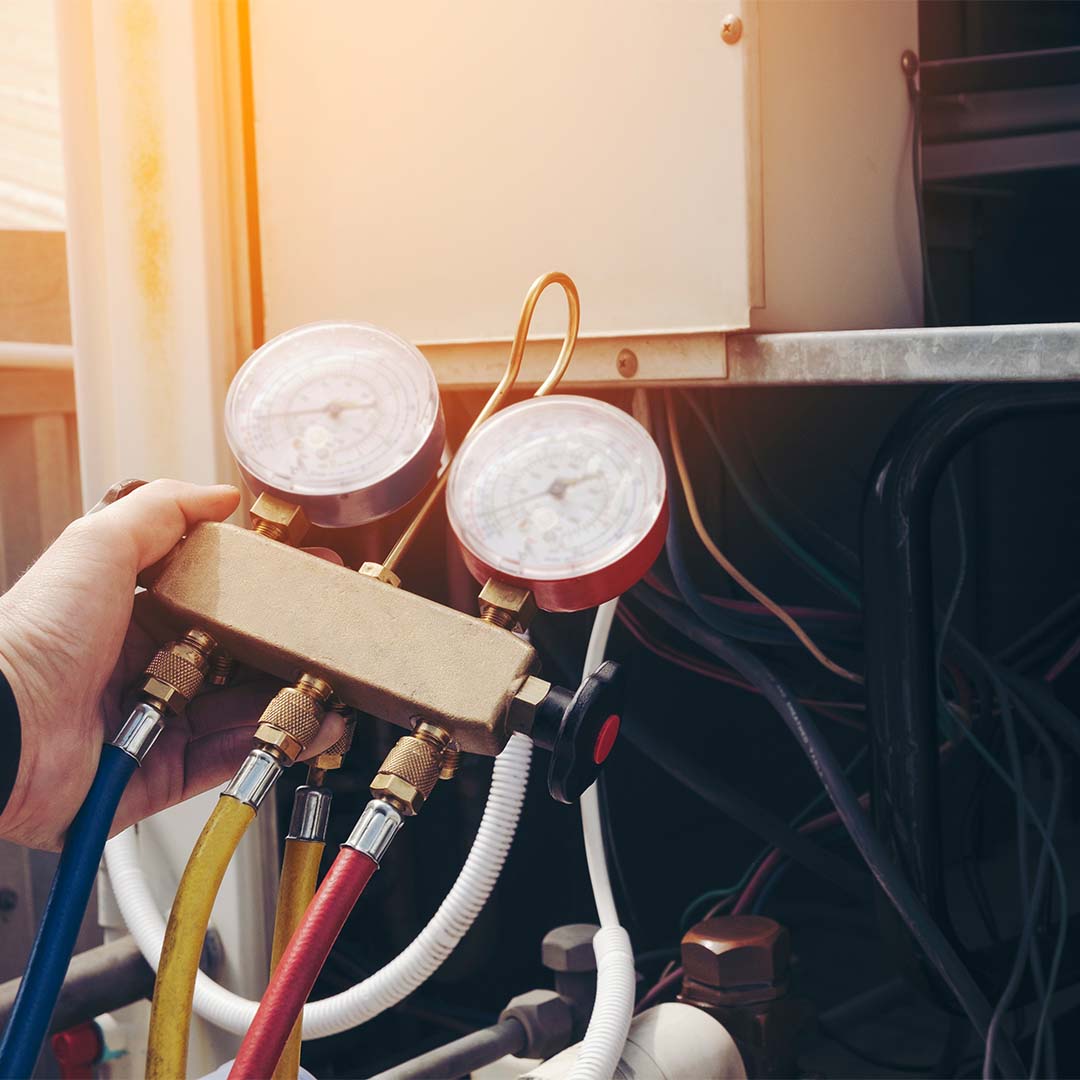Simple Strategies to Reduce Indoor Humidity for Better Comfort
Humidity in the summer is inevitable, especially for those of us living in eastern North Carolina. Between the naturally humid climate and everyday indoor moisture producers such as showering and cooking, it is easy to see why excess indoor humidity is an issue for so many of us. This guide will give you the tools to identify a humid home, reduce the unwanted moisture, and get you back to your summer fun.
Why is excess indoor humidity bad?
High indoor humidity is a commonly underestimated home hazard. In addition to being generally uncomfortable, excess indoor humidity can lead to an unhealthy environment. Dust mites, fleas, harmful chemicals, allergens, pathogens, and other unwanted visitors are more abundant in humid conditions.
Indoor humidity levels fluctuate depending on outdoor environment and season, but should ideally stay around 45 percent.
Signs of a Humid Home
“How can I tell if my home is too humid?” If you are living with some or all of the following signs, it may be time to take action to reduce your indoor humidity level.
- Water damage / Stains
- Condensation / Foggy windows
- Musty odor
- Increased dust mites and/or fleas
- Swelling / Rotting wood
- Rusting and other oxidation
- ‘Wet’ feeling air
- Increased allergy symptoms
- Increased asthma symptoms
- Sleep problems
If you are still unsure whether or not your home is overly humid, ask an Advance Mechanical specialist about FooBot. FooBot is the first intelligent device dedicated to indoor health and wellness. It helps us set the humidity of a room to create a more comfortable environment for the whole family.
Ways to Reduce Indoor Humidity
Some minor interior adjustments and lifestyle changes are recommended to help maintain your ideal indoor humidity level. Even though these recommendations involve some costs, they will save energy, save you money, and improve your family’s health (pets included).
Ventilation
The most effective tool in reducing indoor humidity is ventilation. Use vent fans whenever possible in kitchens, bathrooms, and other moisture rich areas of your home. Opening a window for a few minutes can help to dry the air as well. Increasing ventilation increases airflow, which ultimately reduces humidity.
Fans
The use of ceiling fans increases airflow and aids evaporation.
Short Cool Showers
Bathrooms are infamous for excessively humid conditions. Long, hot showers produce steam, which creates the perfect environment for mold and mildew growth in addition to raising your home’s humidity. Short, cool showers reduce steam, humidity, mold, and mildew.
Cooking Control
Cover pots/pans when cooking to reduce moisture in the air. The use of exhaust fans and slow cookers will also reduce moisture associated with stovetop cooking.
Air Conditioning
Warmer air is capable of holding greater amounts of moisture. Running your air conditioner will remove moisture at the condenser. Humidity will decrease as the air cools. Lowering the airflow speed of your air conditioner lowers the temperature of the evaporator coil, which produces less coil sweat and less humidity.
Pan Pad Treatment
When hot, humid air passes through the cooling coil in your HVAC unit, condensation collects in a drip pan. If left standing, the water in this pan becomes a stale, slimy breeding ground for odor-causing bacteria. At Advance Mechanical we offer an EPA registered, time released pan treatment strip to keep drain lines and pans clean, reduce indoor humidity, and prevent bacteria growth.
Dehumidifiers
Using a dehumidifier is recommended if you live in an older, less ventilated home or if interior adjustments have been ineffective. Close windows and doors, and situate your dehumidifier away from walls and furniture for optimal performance. Dehumidifiers come in many shapes and sizes and utilize a variety of technologies. It is important to research the different types (desiccant dehumidifiers, mechanical/refrigerant dehumidifiers, and peltier dehumidifiers) to ensure that you purchase the one best suited to your situation and lifestyle.
Still have questions? Ask the experts at Advance Mechanical!
The expert technicians at Advance Mechanical routinely address indoor air quality issues for home and business owners all over eastern North Carolina. If you are struggling with indoor humidity and would like to learn more about our in-home moisture control methods, call us today at (252) 355-9191.



 (252) 355-9191
(252) 355-9191